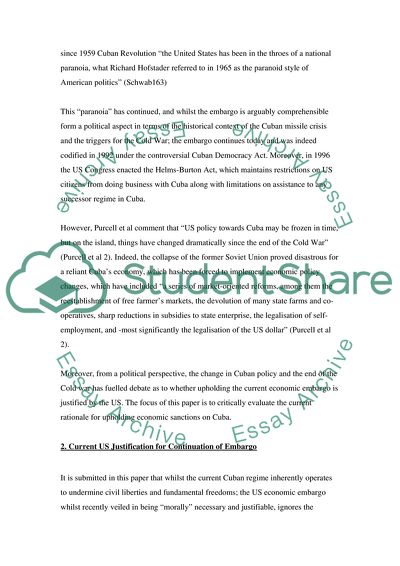Cite this document
(The US Embargo on Cuba Report Example | Topics and Well Written Essays - 1750 words, n.d.)
The US Embargo on Cuba Report Example | Topics and Well Written Essays - 1750 words. https://studentshare.org/politics/1724305-cubawhen-and-why-was-the-embargo-established-and-why-should-or-shoulnt-the-united-states-end-it
The US Embargo on Cuba Report Example | Topics and Well Written Essays - 1750 words. https://studentshare.org/politics/1724305-cubawhen-and-why-was-the-embargo-established-and-why-should-or-shoulnt-the-united-states-end-it
(The US Embargo on Cuba Report Example | Topics and Well Written Essays - 1750 Words)
The US Embargo on Cuba Report Example | Topics and Well Written Essays - 1750 Words. https://studentshare.org/politics/1724305-cubawhen-and-why-was-the-embargo-established-and-why-should-or-shoulnt-the-united-states-end-it.
The US Embargo on Cuba Report Example | Topics and Well Written Essays - 1750 Words. https://studentshare.org/politics/1724305-cubawhen-and-why-was-the-embargo-established-and-why-should-or-shoulnt-the-united-states-end-it.
“The US Embargo on Cuba Report Example | Topics and Well Written Essays - 1750 Words”. https://studentshare.org/politics/1724305-cubawhen-and-why-was-the-embargo-established-and-why-should-or-shoulnt-the-united-states-end-it.


